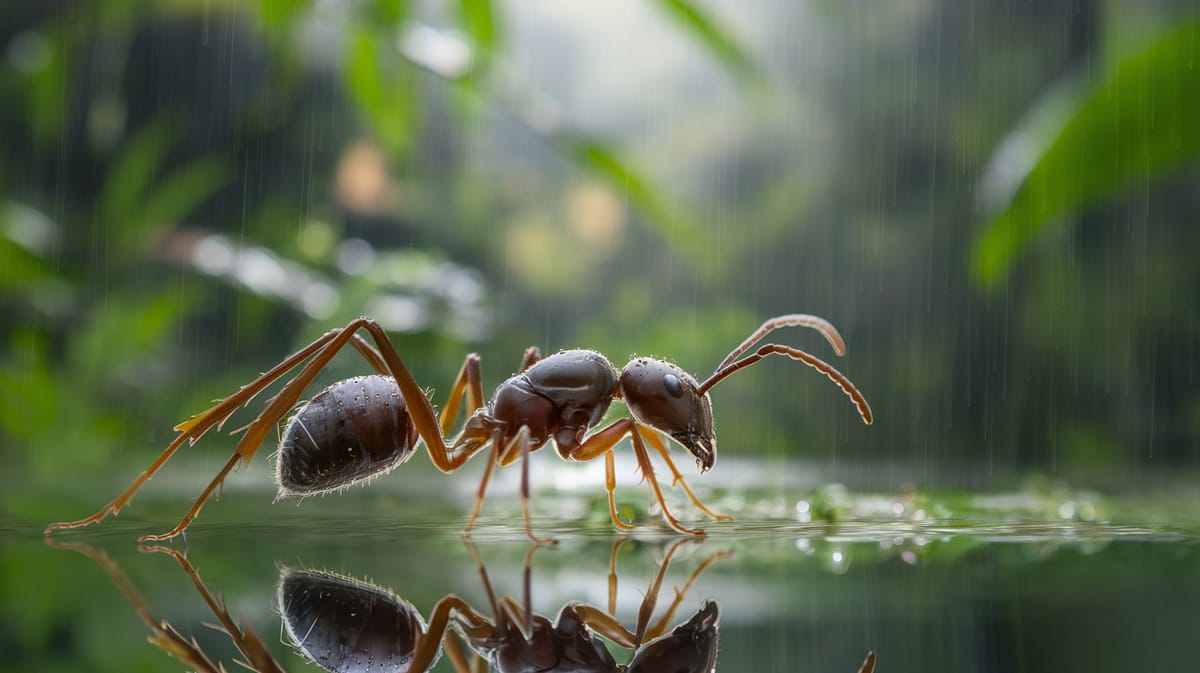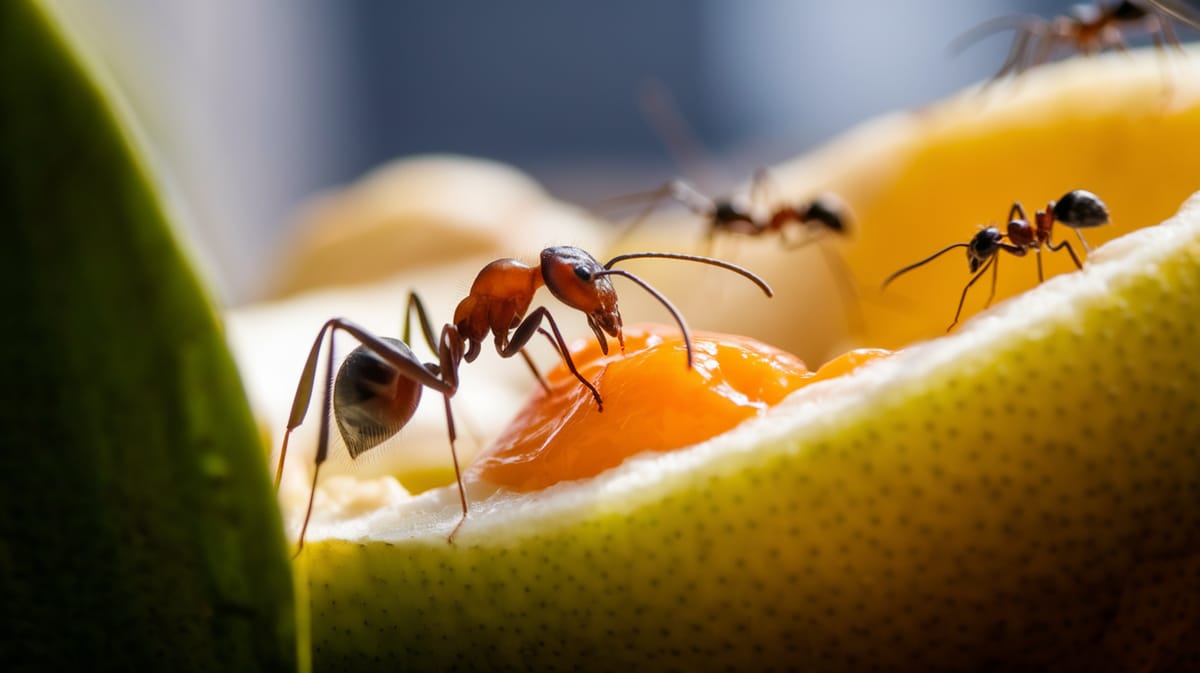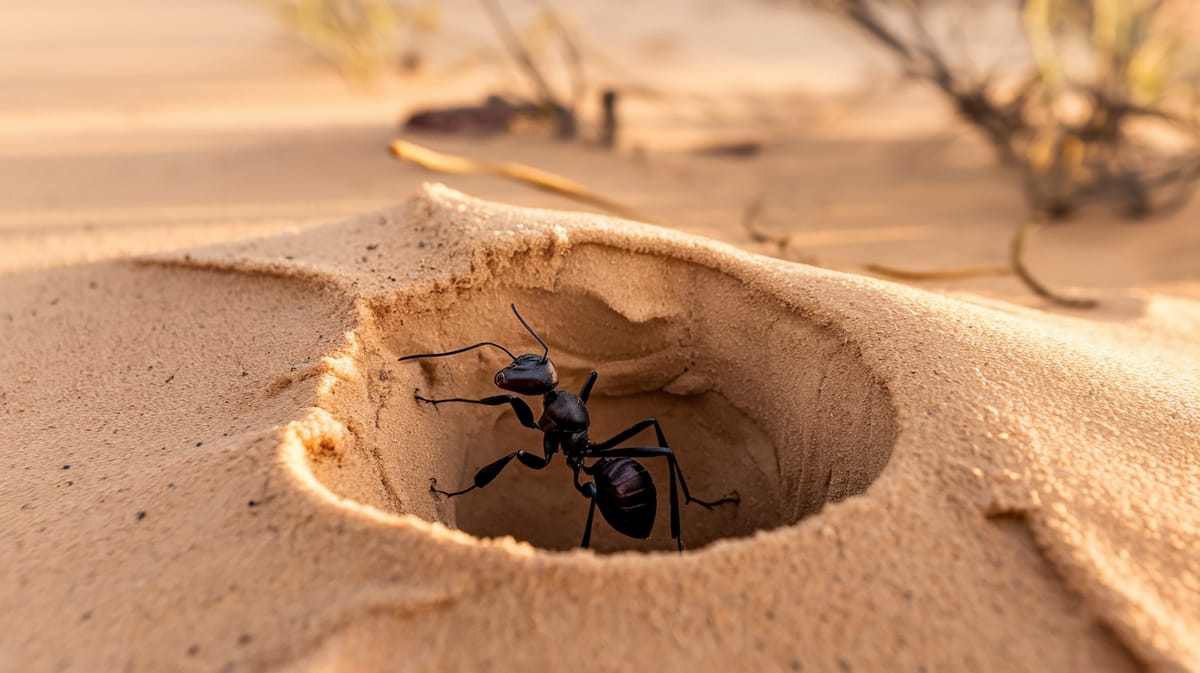Argentine Ant
Relentless invader with a knack for teamwork, the Argentine Ant disrupts ecosystems while forming expansive colonies across continents. Their cooperative nature makes them formidable competitors.

Key Insights at a Glance
Did You Know?
Taxonomy & Classification
Argentine ants exhibit impressive adaptability with highly cooperative colonies and a unique ability to thrive in diverse environments. Let's understand the evolutionary journey and classification of these remarkable decomposers.
Global Presence
Originally from South America, Argentine ants have spread globally, now inhabiting six continents due to their adaptable nature.
Evolutionary Adaptation
Argentine ants evolved to form supercolonies, allowing them to outcompete native species and survive in various climates.
Lifecycle and Growth
A remarkable journey of transformation from Egg to Adult.
Egg
Tiny, white eggs are laid by the queen and develop in a safe nest environment, initiating the colony's lifecycle.
Larva
Larvae are fed by adults, growing rapidly without eyes or legs, preparing for the pupal stage.
Pupa
Pupae undergo metamorphosis, developing adult features while remaining immobile in their protective cocoons.
Adult
Adults emerge ready to forage, reproduce, and expand the colony, showcasing their social organization and adaptability.
Dietary Habits
A highly adaptable forager with diverse feeding strategies, it exploits available resources, including insects, plant secretions, and household foods.
| DIET TYPE | DESCRIPTION |
|---|---|
| Primary Diet | Primarily consumes sugary substances like honeydew from aphids and nectar from flowers. |
| Secondary Diet | Feeds on small insects and their larvae, supplementing its diet with protein and fats. |
| Occasional | Occasionally scavenges on dead animals and infiltrates homes for sweets and greasy foods. |

Behaviour and Adaptations
Discover the fascinating adaptations that enable the Argentine Ant to thrive in diverse environments.
Supercolony Formation
Creates massive colonies with multiple queens for enhanced survival and competition.
Chemical Communication
Uses pheromones to coordinate complex activities and movements efficiently.
Resource Dominance
Quickly exploits food sources, outcompeting native species for resources.
Ecosystem Impact
Argentine Ants play a crucial role in maintaining ecosystem dynamics.
Seed Dispersal
Helps in spreading seeds, aiding plant diversity and regeneration.
Soil Aeration
Improves soil structure through their tunneling activities, benefiting plant roots.
Nutrient Cycling
Assists in breaking down organic matter, promoting nutrient availability for plants.
Conservation Challenges
Understanding and addressing the major threats to Argentine Ant populations.
Invasive Competition
Competing species threaten Argentine Ants by outcompeting them for resources.
Chemical Exposure
Pesticides and industrial pollutants harm Argentine Ant colonies and ecosystems.
Habitat Fragmentation
Urbanization leads to isolated populations, reducing genetic diversity.
Frequently Asked Questions
How long do Argentine Ant live?
Argentine ants typically live for several months. Worker ants may survive up to a year, while queen ants can live for several years under optimal conditions. Their lifespan depends on environmental factors, food availability, and colony health.
What do Argentine Ant eat?
Argentine ants primarily feed on sweet substances like honeydew produced by aphids. They also consume proteins from dead insects and small animals. Their diet can vary widely based on availability, making them highly adaptable to different environments.
Are Argentine Ant poisonous?
Argentine ants are not poisonous to humans or pets. They do not possess venom that poses a threat. However, their presence can lead to ecological imbalances, as they often displace native ant species and disrupt local ecosystems.
Are Argentine Ant endangered?
Argentine ants are not endangered. In fact, they are considered invasive in many regions worldwide due to their adaptability and aggressive foraging habits. Their ability to thrive in various environments makes them a common pest in many urban and agricultural areas.
What do Argentine Ant symbolize?
Argentine ants do not hold specific symbolic significance in cultural or historical contexts. As with many ants, they might generally symbolize industriousness, teamwork, or persistence due to their organized colony structure and collaborative efforts in gathering resources.
Do Argentine Ant bite?
Argentine ants can bite, but their bites are not harmful to humans. They lack the ability to sting and do not transmit diseases. The bites are typically not painful and do not cause significant reactions.
What color are Argentine Ant?
Argentine ants are light to dark brown in color. They have a uniform appearance without any distinct markings. Their coloration helps them blend into various environments, aiding in their survival and proliferation.
Does a Argentine Ant have wings?
Winged Argentine ants are present during their mating season. Reproductive males and queens develop wings for nuptial flights, after which they shed them. Worker ants, which make up the majority of the colony, do not have wings.
What does a Argentine Ant look like?
Argentine ants are small, measuring about 2.2 to 2.6 mm in length. They have a slender body, with a segmented, smooth thorax and no spines. Their petiole has a single node, distinguishing them from some other ant species.
Is a Argentine Ant an insect?
Yes, an Argentine ant is an insect. It belongs to the family Formicidae within the order Hymenoptera. Like all insects, they have a segmented body structure comprising a head, thorax, and abdomen, along with six legs and compound eyes.
Related Insects
Discover insects with similar characteristics to Argentine Ant - including shared habitats, diets, and taxonomic classifications
Share this profile
Help others discover Argentine Ant
